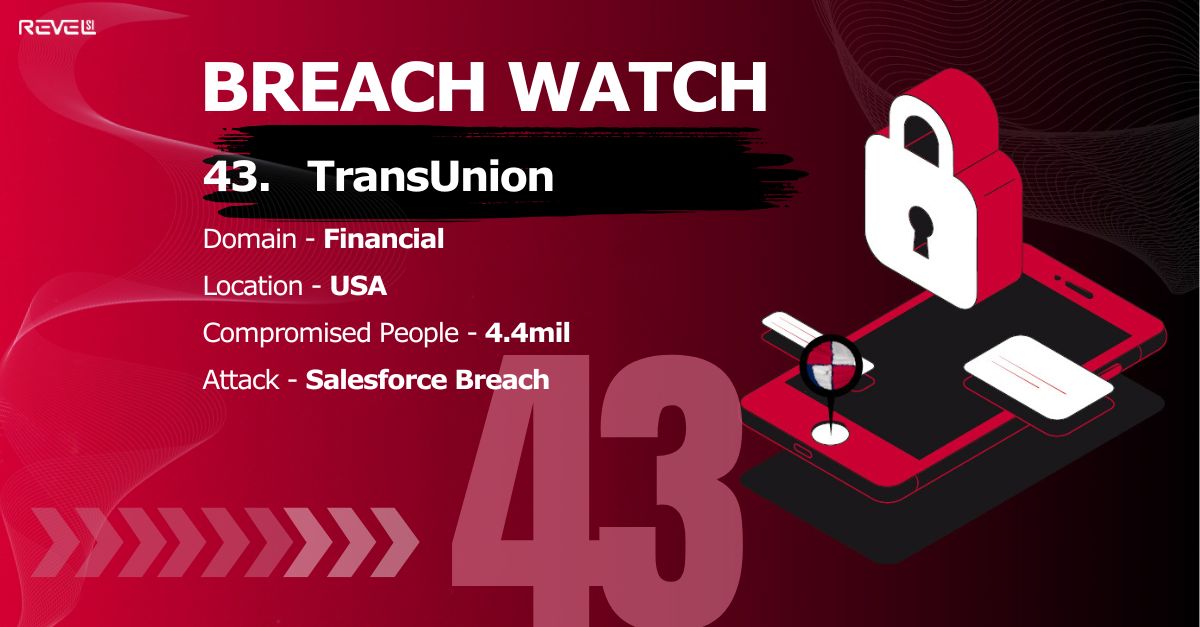TransUnion Breach: 4.4 Million People Exposed in the Latest Cybersecurity Incident

Overview
Another week, another major breach—this time at TransUnion, one of the three big U.S. credit reporting agencies. In late July 2025, the company confirmed that an incident exposed the personal information of over 4.4 million people. TransUnion says core credit report databases weren’t accessed, but the data that did leak is sensitive enough to enable identity theft and fraud.
How It Happened
Attackers exploited a vulnerability in a third-party application used for U.S. consumer support—not TransUnion’s core credit systems. The incident began around July 28, 2025 and was detected shortly after. While the investigation continues, public reporting has linked the intrusion to a known ransomware/ extortion group.
Data accessed included:
- Full names, mailing addresses, phone numbers, email addresses
- Dates of birth
- Unredacted Social Security numbers (SSNs)
- Support ticket details (e.g., reasons for contacting TransUnion)
TransUnion is notifying impacted individuals and offering 24 months of free credit monitoring and identity protection.
Risks
This breach is serious because SSNs and core identifiers don’t expire. Criminals can combine these details to open new accounts, file fake tax returns, or engineer highly convincing phishing scams. Even if you don’t see fraud right away, the data can circulate and be abused over months or years.
Recommendations
If you receive a notification—or even if you just want to be cautious—take these steps:
- Enroll in the free monitoring offered by TransUnion as soon as your letter arrives.
- Freeze your credit at TransUnion, Equifax, and Experian to block unauthorized account openings.
- Watch your statements for strange charges; small “test” charges can be early warning signs.
- Be skeptical of urgent emails/calls asking for personal info—phishing often follows big breaches.
- Harden your accounts with strong, unique passwords and two-factor authentication wherever possible.
Final Thoughts
You can’t control how companies secure their systems, but you can make yourself a harder target. Freezing credit, enabling monitoring, and staying alert to phishing attempts go a long way. Breaches like this are a reminder to treat personal data as permanently at risk—and to build daily habits that reduce the chance of becoming a victim.
